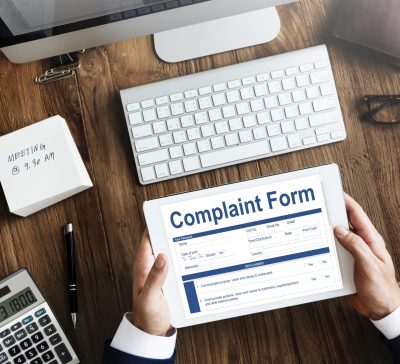
Energy Claims
Hidden Commisssions and mis-selling of energy contracts
There has been a lot of focus on “unscrupulous” brokers, hidden commissions, how brokers rip off customers and force them into paying thousands more through hidden commission, iNews reported that suppliers could face a £2bn claim due to hidden commissions. While we cannot say there isn’t an element of the market which is underhanded, manipulative of situations and mis-sell for their own gains, this isn’t true for every broker.
What is a broker?
So, what is a broker? A broker according to Wiki is an independent person or company that acts as an intermediary between a buyer and a seller for a commission when the deal is executed. That means in the energy market they provide independent advice and access to prices across all if not a large selection of suppliers, that if that advice ends in a contract are paid a commission.
This is no different to when you buy business insurance, life insurance, car insurance, a mortgage etc. Every single one of these transactions will pay out a commission to your financial advisor, your mortgage advisor, or even your online comparison sites. The likes of comparethemarket.com, moneysavingexpert.com or MoneySuperMarket.com all get paid a commission for selling products via their platforms, so why is there such a furore over energy commissions and how it is ripping off the market.
The underbelly of energy brokering
The reputation of energy brokers and brokerages is not a good one, so why is that? It is probably down to the high pressure selling techniques, the constant bombardment of a business within the renewal window (this is the period before a contract end date where a new supply contract can be negotiated), the use of a verbal contract where “promises” have been omitted to the supplier but the customer has agreed the terms and conditions so are legally bound to the contract. Probably a combination of all the above.
This is where energy brokering is slightly different to the other markets, it has a history of cold calling, high volume contact and the quickest to the customer wins. This means brokerage after brokerage obtaining the same industry data, calling constantly trying to get a customer into a contract ASAP before their competitors regardless of the market prices at the time and definitely regardless of price to the customer which includes their “hidden commission”.
There are things a business can do to help themselves and we will touch on this later.
Why use a broker?
A good broker, will monitor the market, the prices, look at the future trends, judge the best time to renew a contract based on your own consumption (take a look at our latest prices which show how a unit rate changes depending on your usage), a good broker will save you money and work for that “hidden commission”.
Let’s look at how a broker earns their “hidden commission” and why they can be worthwhile. An energy supplier is no different than an insurance provider, to put this into context, think about your car insurance, it is renewal time, they send you a letter telling you that your renewal premium is significantly higher than it was last year, why do they do this? Because a lot of customers will forget and get caught on an auto-renewal, the increase in premiums makes the insurance company significantly more money. However, this does generate the majority of us to go to a comparison website or a broker to see what deals they can get, normally these prices are generally a lot cheaper than the renewal price, you the customer is happy, the new provider is happy and the intermediary (comparison website or broker) is happy as they receive their commission for the sale. This is no different in the energy market.
One of the large energy claims companies, Business Energy Claims use an example on their website to prove how brokers are making their money and claim this to be mis-selling of an energy contract. So let’s work through their example:
Actual Cost of Energy:
10p per kWh
Energy Broker Commission
1p per kWh
Your bill shows
11p per kWh
Supplier pays the broker:
1p per kWh
Using these figures they claim:
Contract 1: Gas
- Contract Length: 2 years
- Energy Broker Rate (Uplift): 1p per kWh
- Annual Consumption: 523,151 kWh
- Energy Broker Commission: £10,463.02
Contract 2: Electricity
- Contract Length: 5 years
- Energy Broker Rate (Uplift): 0.4p per kWh
- Annual Consumption: 764,894
- Energy Broker Commission: £15,297.88
Total Combined Commission: £25,760.90
While this is correct, it is worth noting this is paid over a duration of 5 years and is dependent on your own usage, so while it is correct the money collected by the broker is spread out over the contract and is variable. Now, if we take their example and go through what happens when a customer comes up to a renewal with a supplier we can show how the 2 different scenarios work out.
Let’s look at the gas contract:
The existing supplier offers a base rate of 9p per kWh upon renewal so the customers gas will cost them a total of £47,083.59 a year. The customer decides to contact some energy suppliers directly, depending on whether these suppliers want to acquire new customers (very pertinent in the
current market – March 2023) their rates may not be competitive, for the sake of this example they are offered a cheaper rate of 8.5p per kWh, so their annual bill will be £44,467.84, saving £2,615.76p! Result.
Now let us look at what happens when using a broker. The broker will have access to every suppliers base rate (their cost without a cost of sale increase). In general, it will be a couple of pence cheaper, so for a market rate the broker will be looking at a base rate of around 7p per kWh for the same unit of gas that the original supplier was charging 9p for. Given the claims company used 1p uplift, the broker adds a 1p per kWh uplift, resulting in a sale rate to the customer of 8p per kWh, meaning they now would pay
£41,852.08, saving the customer £5,231.51 a year, a further saving of £2,615.76 on top of their own efforts.
Whether this commission is visible or not is irrelevant as in general the broker is saving the customer more money than they would by dealing with a supplier directly. The question then is, why do suppliers not just market their base rate, the main reason for this is that they would still have to pay for a large dedicated sales team which pushes their base rate upwards and so will no longer be that of 7p per kWh but more likely the 8.5 / 9p per kWh. By not having to invest millions in a large sales team it provides them flexibility on when they want to acquire new customers or not. If a supplier has to spend millions on staffing a sales team they will always need to acquire to justify the cost, in energy this is not always something a supplier will want to do.
What you can do as a customer to make sure you are not mis-sold?
While some of these numbers can by eye watering and difficult to comprehend for the end customer they are justified to some point, as one way or another the customer will be paying the same rate, they just have a better chance of having a much lower rate with a broker as bonkers as that may seem.
Therefore, what can you do to ensure you are not mis-sold and what can you do if you are?
- Register your business number with the TPS Service – this should remove your number from the cold calling bibles energy brokers use. If you are still contacted then raise a complaint.
- Never agree to anything over the phone without seeing it in writing, this ensures everything that has been promised on the phone is written on the contract. Regardless of what the broker says, once you have verbally agreed to the contract, it is legally binding.
- Check the market, at Time2Switch we display the latest prices (including high commission – yes we can and will do better than the rates shown), so keep an eye on the:
- Try a few suppliers out yourself and see what rates you can achieve
- Build trust with a broker, this does take years but as mentioned above, a good broker works for you, it isn’t just the work they put into a contract
- Ask your broker what commission is being paid – at Time2Switch this is always visible on the supplier contracts
What to do if you feel you have been mis-sold?
All brokers have had to sign up to the Ombudsman Service Alternative Dispute Resolution (ADR) scheme, this scheme details the routes available to you and ensures every complaint is dealt with accordingly.
There is also the energy claims companies which will look at your contracts and dealings with a broker, however, just because you have paid commission doesn’t mean you have been mis-sold, I will caveat that to pressurising a company into a sale for a high price at the wrong time just to be the first broker to sign you up is not right.
About Time2Switch
Time2Switch was setup to provide a transparent approach to brokering services, helping reduce consumption, focussing on renewables and generally doing what we can for our clients to reduce costs whether it is energy or financial services.
We are fully signed up member of the Ombudsman Services ADR scheme which can be viewed here
